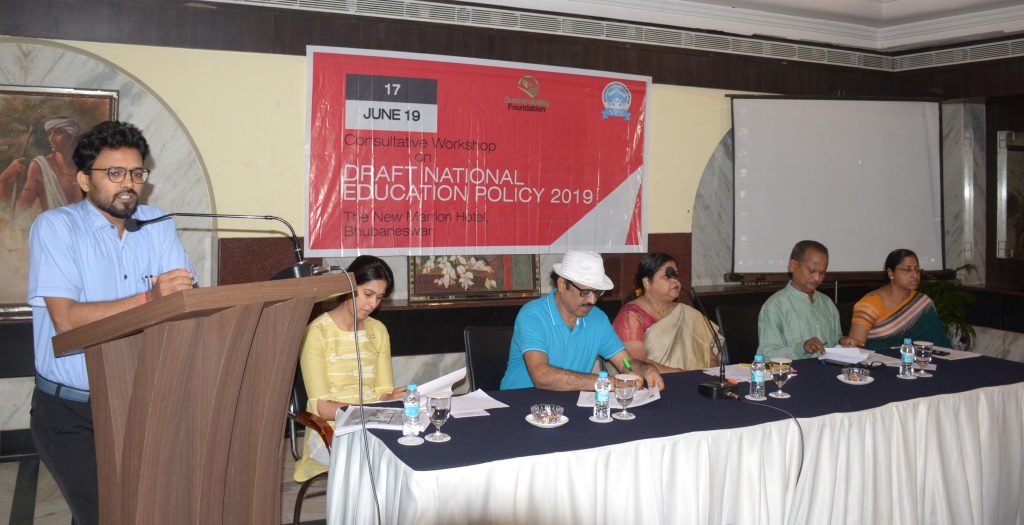Bhubaneswar: Civil society leaders have welcomed the long-awaited shift in the education sector as mooted in the Draft New Education Policy 2019. However, they said, there are some inclusions which need to be reconsidered before it is finalised. Their views emerged during discussions on the draft education policy at a consultative workshop held in Bhubaneswar Monday.
Sustainability Foundation, a state level non-profit body, organised the event in collaboration with National Coalition for Education. The aim of the workshop is to come out with recommendations on the policy as the Union Ministry of Human Resource Development is seeking inputs and suggestions on the draft from citizens by June 30. Naba Kishor Pujari, Chairman of Sustainability Foundation, said: “We welcome the policy as it talks about inclusion of both early childhood education and secondary education under RTE, doubling the budgetary allocation for education, strengthening decentralized mechanisms of teacher management and support and a possible comeback of the no-detention policy which was scrapped by the BJP led NDA Government.”
Pujari, however, said that “our demand on Common School System is long standing and justified. The Education Commission of India in its report in 1964-66 recommended the establishment of a Common School System for all children irrespective of their class, caste, religious or linguistic background. However, this has no place in the policy. Secondly, the policy specifically promotes private schools in the name of quality education whereas there is no evidence to prove that private schools deliver quality education. We hope that our feedback is taken into consideration for the better future of children of our country.”
Noopur of National Coalition for Education, New Delhi, said that the positive aspects of the policy are its focus on childhood care and education and its recommendation of extending the ambit of the Right to Education (RTE) Act to include early childhood education.
This would extend the coverage of the Act to all the children between the age of three to 18 years, she said. Also, the recommendation of reducing the curriculum load in each subject to its essential core content is also a welcome step. The current structure of school curriculum solely focuses on rote learning. The new system would make space for holistic, discussion based and analysis-based learning, Noopur said, adding the regularization of all teachers and no detention policy rule is appreciable. The draft policy has recommended the setting up of National Research Foundation for funding, mentoring and building the capacity for quality research in India.
The foundation will be provided with an annual grant of `20,000 crore. Such amount must be spent in quality way and must be given to deserving people and organisations. Otherwise, it would be of no help, Noopur added.
Santosh Patra of Oxfam India said the Central government must give more time to stakeholders to submit their views as the policy has many schemes which require more time to review. Policy experts on education from international NGOs and Odisha RTE Forum and members of grassroots level NGOs from 15 districts participated in the workshop. Among the key recommendations made at the workshop on Draft National Education Policy 2019 are: Clarity about role of different committees; inclusive education; no priority to unrepresentative groups.
